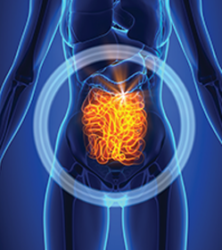Doctor’s Data GI360 Stool Testing Kit
$770.00
The GI360 Profile includes 6 component test bundles that together give you a 360-degree functional assessment of the GI system.
NOTE: This test is replacing the Doctor’s Data Comprehensive Stool Analysis with Parasitology x3 Testing Kit
Introduction
The GI360TM Profile: an innovative, comprehensive and clinically-applicable stool profile, utilising multiplex PCR molecular technology coupled with growth-based culture and ID by MALDI-TOF, sensitive biochemical assays and microscopy to detect and assess the status of pathogens, viruses, parasites and bacteria that may be contributing to acute or chronic gastrointestinal symptoms and disease.
The GI360TM Profile is a gut microbiota DNA analysis tool that identifies and characterises the abundance and diversity of more than 50 targeted analytes that peer-reviewed research shown contribute to dysbiosis and chronic disease.
The GI360TM can identify the presence of 15 pathogenic viruses, bacteria and parasites using multiplexed, real-time PCR. Viruses are the primary cause of acute diarrhea, and least commonly tested. The identification of pathogenic bacteria, viruses and parasites improves treatment strategies and patient outcomes.
Culture
It is important to continue testing culture alongside using DNA methods. culture is considered the gold standard for stool microbiology, and is the only method that allows isolating organisms for standardised antimicrobial susceptibility testing, and facilitates advanced MALDI-TOF species identification.
Microbiome Abundance & Diversity
The Microbiome Abundance and Diversity test is a standardised, reproducible, and clinically validated test that gives a birds eye view of the gut Microbiome. It is the most relevant gut microbiota DNA analysis tool and identifies and characterises the abundance and diversity of more than 45 targeted analytes that peer-reviewed research has shown to contribute to dysbiosis and other chronic disease states. This test cuts out the noise by representing only the most relevant markers that distinguish between normobiosis and dysbiosis.
Susceptibility testing
Using the pathogens detected by MALDI-TOF, EVERY single patient’s sample is tested using the diffusion method to identify the zones of inhibition which are unique to each patient – evaluating phenotypic expression, for reliable eradication strategies (including yeasts). Doctor’s Data includes both pharmaceutical agents as well as botanicals in their susceptibility testing.
Microscopic Yeast
Yeast are not uniformly dispersed throughout the stool and this may lead to undetectable or low levels of yeast identified by microscopy, despite culture and identified yeast species. conversely, microscopic examination may reveal a significant amount of yeast present but no viable yeast cultured. Yeast may not always survive through the intestines. Nonviable diet-derived yeast may also be detected microscopically.
Beta-Glucuronidase
Beta-glucuronidase is an enzyme that breaks the tight bond between glucuronic acid and toxins in the intestines. The binding of toxins in the gut is protective by way of blocking their absorption and facilitating excretion. Higher levels of beta-glucuronidase may be associated with an imbalanced intestinal microbiota profile, as well as higher circulating oestrogens and lower faecal excretion of oestrogens.
O&P (Ova & Parasitology)
Gold standard parasitology involves a qualified parasitologist examining 3 consecutive stool samples via microscopy to detect all forms of parasites (including their egg stages), for the most conclusive assessment of parasite presence. GI360 also utilises multiplex DNA technology, testing for multiple pathogens and parasites (for which genetic probes exist for), to assist with identification.
Inflammation Markers
Inflammation can significantly increase intestinal permeability and compromise assimilation of nutrients. The extent of inflammation, whether caused by pathogens or inflammatory bowel disease (IBD), can be assessed and monitored by examination of the levels of biomarkers such as lysozyme, lactoferrin, white blood cells and mucus via this stool test. Other Markers IncludedSecretory IgA (sIgA), Digestive Markers (elastase, fat stain, muscle fibres, vegetable fibres, carbohydrates) and Short-chain Fatty Acids.
This test is useful for
- Gastrointestinal Symptoms
- Autoimmune Disease
- IBD/IBS
- Inflammation
- Food Sensitivites
- Nutritional Deficiencies
- Joint Pain
- Acute or Chronic Diarrhea
- Bloody Stool
- Mucosal Barrier Dysfunction
- Abdominal Pain
- Fever and Vomiting
Turnaround Time
3-4 weeks
***Please note this does not include the interpretation of your results. You will need to make an appointment with one of our practitioners to discuss your results.
Return Policies
• Return policy for a refund is 90 days from the date of purchase.
• The kit must be returned to Dr Wellness before any refunds can be issued.
• Shipping fees are non-refundable.
• There is a $50 restocking fee.
• Credit card refunds can take up to 30 days to be processed.
Out of stock


